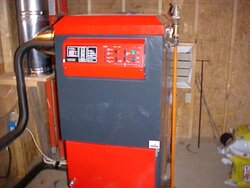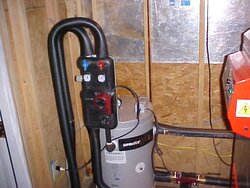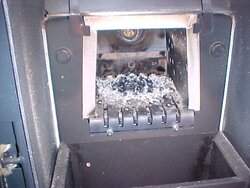This forum has been great, I'd never heard of a gassifier three months ago. General question on commercial usage, do you think most school districts (say in Zone 5 or colder) at some point entertain the idea of using a gassifier, especially if they could get the fuel donated. Or is the market more industrial/agricultural in nature (machine shops, farmers).
I'm interested in reading any posts, links that delve more into, Thanks
I'm interested in reading any posts, links that delve more into, Thanks





 landfills. I think its only a matter of time before they realize the needless expense on their income statement, and dare I say make a modest profit off of it by selling to mills, pellet manu., schools & commercial co.s with boilers, etc.
landfills. I think its only a matter of time before they realize the needless expense on their income statement, and dare I say make a modest profit off of it by selling to mills, pellet manu., schools & commercial co.s with boilers, etc.